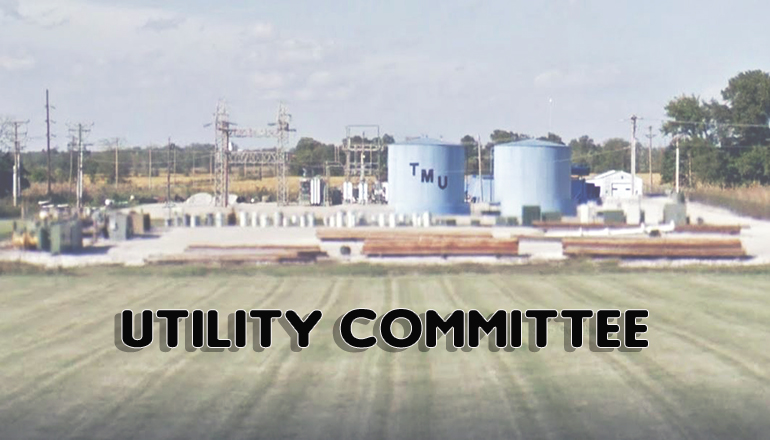Recommendations made Tuesday night by the Trenton Utility Committee will advance to a meeting of the full Trenton City Council.
One recommendation involves rural water district rates. Others involve purchases, a change order, and action was tabled regarding the construction of a warehouse.
An increase in water rates for the city of Trenton customers began with their usage on September 1st and will be posted to bills on, or after September 30th. Grundy County’s Rural Water Supply District buys water from the city of Trenton to serve rural customers including the towns of Galt and Spickard. Laredo and southeast Grundy County are served by the Linn & Livingston County public water district.
A rate study by Toth and Associates indicated the Grundy County Public Water district should be in a separate category and not considered customers outside the city limits. Interest also was expressed in establishing rates that have the rural water district as a wholesale customer.
Following discussion, committee members voted to keep the monthly base charge at the current rate for the rural water district. The monthly metered rate would be six dollars sixty cents ($6.60) per 100 cubic feet for up to the first one thousand cubic feet. The committee looked at projections that propose a rate decrease for the rural water district of two point six percent (2.6%) in each of the next four years with no change in the first year. The proposal advances to the Trenton City Council for review. City officials have been considering the construction of a warehouse in order to house equipment and supplies indoors for the electric, water, and wastewater departments.
A quote was obtained from Jamesport Builders on a 13,228-square-foot structure with a cost of $221,612. Utility Director Ron Urton said $140,000 was budgeted, but he indicated the difference could be made up by using $51,000 from the electric department’s reserve funds and $26,000 from the water and waste-water departments.
Urton described budgeted projects and purchases within the water and sewer departments that probably won’t get done, so that money could be diverted to a building project. Trenton Utility Committee chairman Duane Urich said with rising interest rates and anticipated lower costs for products and materials, late winter might be a better time to consider the building.
Other members of the committee and the Utility director agreed to re-visit the proposed project in late winter and present information to the council’s finance committee as it prepares the next TMU fiscal year budget. The proposed location for a new warehouse is in a parking area near the TMU building at 26th Street and Oklahoma Avenue. Construction would be subject to the bidding process.
The committee recommends three purchases. Two are with the Enviro-Line Company for a replacement pump at the Pleasant Plain lift station. The cost is $7,728 plus freight. It’s the fifth of five pumps budgeted for replacement. The other is $8,975 on four control panels for the “Simplex” lift stations.
Also recommended is $7,100 for a heating and cooling unit in a climate-control building at the sewer plant. Work will be done by Midwest Mechanical.
Advancing to the city council is a change order recommended by the Howe engineering company regarding the 21-inch sewer lining project. Urton explained the city has received its first allotment of ARPA funds from the government which can finance the estimated $470,000 cost of 3,200 feet of the project.
The area to be worked on extends from 16th Street to the south end of the airport. The recommendation to proceed with sewer lining comes after the engineering report and flow study for the Pleasant Plain and Pauper Grade lift stations. The conclusion is that the city has a lot of inflow and infiltration during rain storms. The report noted this can be caused by cracked pipes and manholes, broken pipe joints, and other factors. The situation was described in the report as significant enough that it changes the magnitude of size of new infrastructure intended to handle it and may overwhelm existing infrastructure.
Howe Engineering recommends lining existing sewers that flow to the Pleasant Plain and Pauper Grade lift stations. It also requests repairs to lines with isolated failures that allow significant inflow. And the report suggests repairs to improve flow efficiency in gravity lines specifically near the Pauper Grade lift station to eliminate the multiple right turns prior to entry to the lift station. Benefits of sewer lining include reductions in operating costs, reduced maintenance costs, and lower costs on future upgrades.


